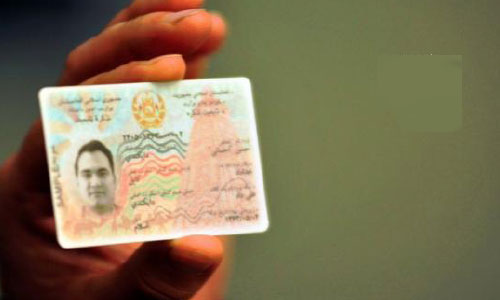KABUL - Some people term the launch of Computerized National Identity Card (CNIC) as unsuccessful, saying the manual identity or paper Tazkera remains popular among the masses.
They say even after one year of getting the computerized card, it could not become popular or accepted in government institutions.
Haji Bashir, a resident of capital Kabul who has an electronic ID card, said he was asked to bring paper Tazkera at the Traffic Department where he wanted to renew his license.
Bashir was told that Traffic Department had not received a formal notification regarding accepting the computerized ID Cards.
Ahmad Suhaib, another resident of Kabul, said: “I have the electronic ID card for the past six months but still in some government institutions it has no credibility. ”
Resident Abdul Basit Karokhel, who obtained the computerized ID cards along with his family six months earlier, complained about the ineffectiveness of the cards.
He said he suffered many problems during the process of getting the computerized ID but he had been disappointed since it could not replace the paper Tazkera.
However, Ahmad Roet Hussaini Yawar, head of the Passport Office, said the computerized ID cards were accepted at the Passport Office, adding that individuals with such cards should not go to the Population Registration Department (PRD) for its confirmation as it was credible to thm compared to the paper Tazkera.
Mohammad Daud Chakari, head of the Traffic Department of Kabul, said they had received no notification regarding the computerized ID cards from the PRD, therefore biometric verification of these cards had to be conducted for a second time.
He said holders of the electronic ID cards were not required like holders of paper ID cards to confirm their identity from the PRD.
Saer Zaland, spokesman for the Ministry of Telecommunication and Information Technology, said technical issues in the computerized ID card were their concern while sharing information regarding the process was up to the PRD.
He said before sharing information, the authorities concerned signed an agreement with the PRD on the basis of which the information was shared with them.
Rohullah Ahmadzai, PRD spokesman said, the process of electronic ID cards was being implemented in Kabul currently and would be launched in Herat, Balkh, Kandahar and Nangarhar provinces soon.
He said from the start of the distribution of the computerized ID cards, around 140,000 people had obtained them.
“The problems of confirmation of citizenship in certain government institutions may exist until the information or database is not shared with them, ” he said.
Ahmadzai added after the information was shared with other institutions, massive facilities ranging from transparency in polls, improvement in security, hiring of employees would be provided.
Mohammad Kabir Rangbar, a legal expert, said having the computerized ID card was an essential thing, adding unless a complete data regarding the citizens was not available, the conduct of uplift work in a particular area for its people may not be successfully implemented.
He added the computerized cards would help accurately count of the country ’s population and would be quite effective in elections. (Pajhwok)
Home » Afghanistan » People Complain E-Tazkera Not Accepted in Public Offices
People Complain E-Tazkera Not Accepted in Public Offices

